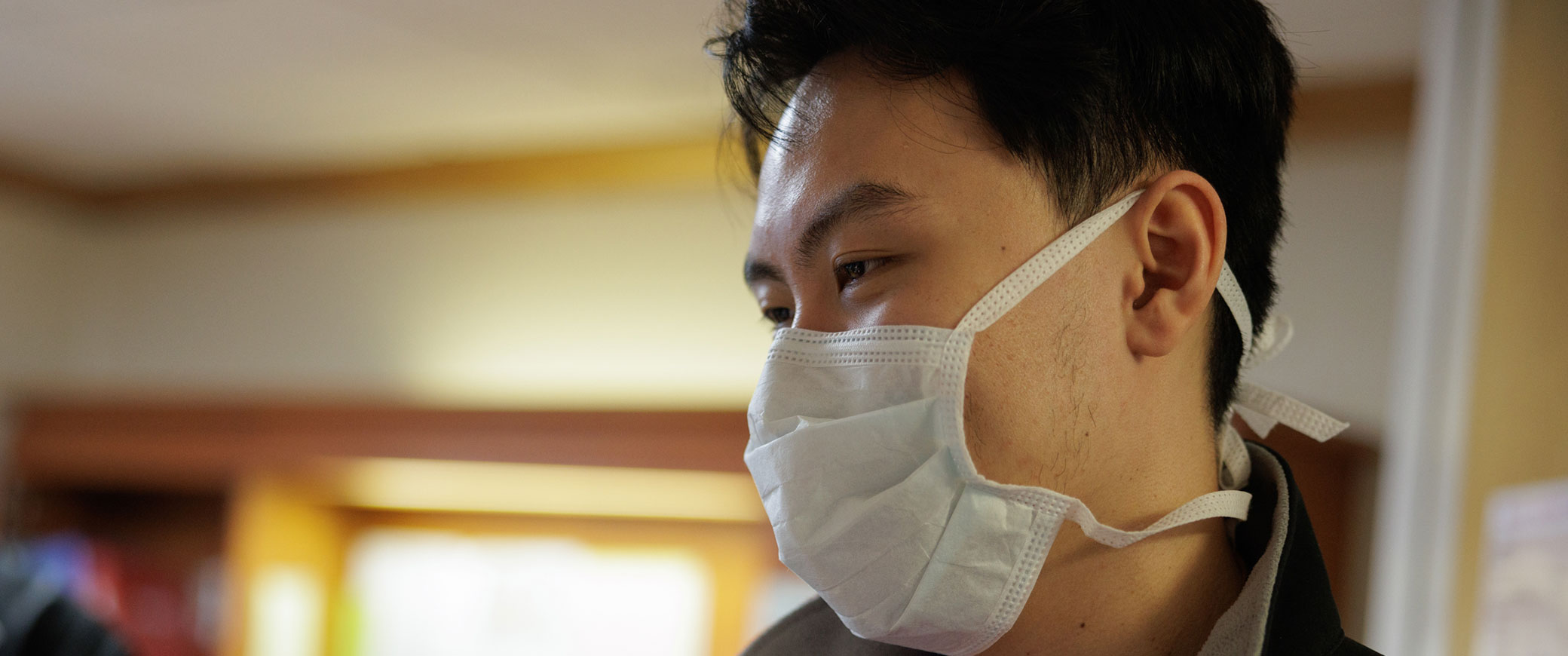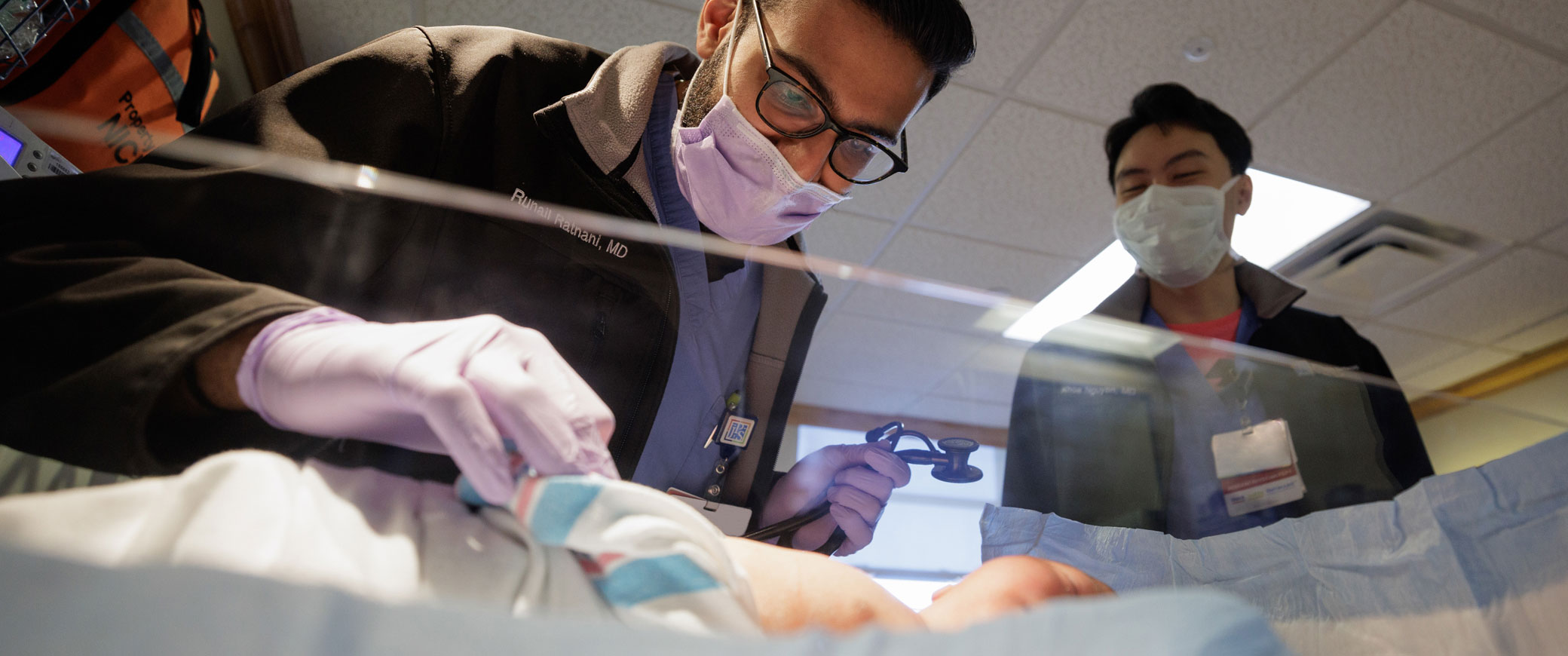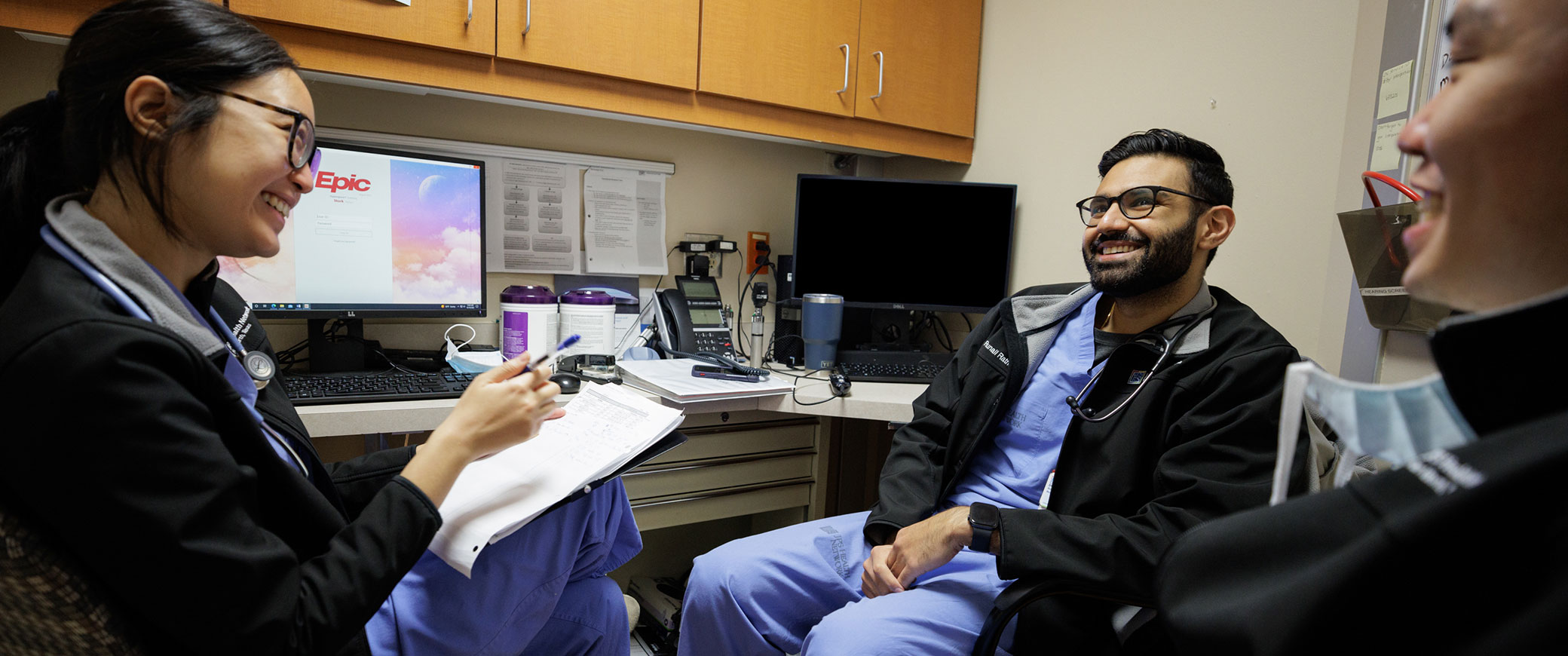Program Curriculum
Academic Year 2026-2027
Twelve Months of Rotations
Fundamental Clinical Skills
| Rotation | Duration/Months |
|---|---|
| Emergency Medicine | 1.5 |
| General and Trauma Surgery | 1.5 |
| Newborn Nursery | 1.5 |
| Inpatient Medicine | 2.5 |
| Critical Care Unit (MICU/SICU) |
1 |
| Total | 8 |
Electives
| Rotation | Duration/Months |
|---|---|
| Patient Centered | 3.5 |
| Non-Patient Centered (Research) |
0.5 |
| Total | 4 |
Ambulatory/Primary Care
| Rotation | Duration/Hours | |
|---|---|---|
| Family Medicine Primary Care Clinic (FHC/SSC/VPC) |
144 | Longitudinal 36 Weeks (1 half day clinic per week) |
| Pediatric Clinic | 20 | Pediatric Rotation (5 – half days) |
| General Surgery Clinic | 20 | General Surgery Rotation (5 – half days) |
Elective Rotations List
This list is not all inclusive
- Anesthesiology
- Emergency Medicine
- Family Medicine
- Geriatrics
- Pain Management
- Sports Medicine
- Pediatrics
- General Pediatrics
- Neonatology
- Radiology*
- General Radiology
- Neuroradiology
- Radiation Oncology
- OB/Gyn
- Gynecology
- Labor and Delivery
- Perinatology
- Special Procedures
- Orthopaedics
- Orthopaedics
- Physical Medicine Rehabilitation
- General Surgery
- In-patient Service
- Surgical Intensive Care
- Trauma
- Surgical Subspecialty
- ENT
- Urology
- lastics
- Ophthalmology
- Internal Medicine
- AIDS
- Cardiology
- Dermatology
- Gastroenterology
- Infectious Disease
- In-patient Service
- Medical Intensive Care
- Neurology
- Oncology
- Pulmonary
- Renal/Metabolic
Curriculum
Internal Medicine Rotation
On the general adult inpatient rotation, interns and residents work as part of a team to manage the medical and social complexities of acutely ill patients throughout the hospitalization. Interns should expect autonomy to determine initial and follow up treatment plans, under the supervision of upper-level residents and attending physicians. Call cycle is every sixth day, with no 24 hour call for interns. Morning report occurs every Tuesday and Thursday, hosted by the pre-call team that day.
General Surgery Rotation
Residents will work as part of a general surgery team, evaluating acute surgical complaints, perioperative care, and postoperative management. Call cycle is every fifth day. Interns are also integrated into trauma responses, including the primary evaluation of acute traumas.
Emergency Medicine Rotation
Residents will see patients in all areas of our Emergency Department, which is a designated Level 1 Trauma Center. This includes trauma and all levels of medical acuity for evaluation and initial management. Residents should expect to be included in the entire patient's cycle through the ED whenever possible.
Pediatrics Rotation
Residents rotate in the Pediatric Clinic, Newborn Nursery, and Labor & Delivery for stabilization of the newborn. All PGY-1 Transitional Residents complete their NRP Certification during the Pediatric rotation. The rotation is alongside FM interns and second year residents.
Research Rotation
Residents will review concepts of developing and formulating searchable questions, search the literature, and summarize information. Residents will incorporate principles of research and quality improvement into their professional activities. Residents will identify a problem along with the type of data necessary to measure performance improvement. Residents will also present at didactics and journal club meetings throughout the year.
Ambulatory Clinics
Throughout the TY intern year, residents participate in a longitudinal continuity clinic at one of three clinical sites. Rather than a continuous ambulatory block where many appointments are simple acute visits and medication refills, residents will host their own personal clinic one half day per week, with their own designated patient panel. This allows for a more meaningful primary care ambulatory experience, as well as increased elective rotations.
Elective Rotation
Electives could be in an area offering fundamental clinical skills or in subspecialty areas. One elective may be taken at a teaching facility outside JPS Helath Network, but within the State of Texas with approval of the program director. If a resident wishes an elective that is not listed, every effort will be made to accommodate the request. Electives are offered in the following:
Anesthesiology
Emergency Medicine
Family Medicine
- Geriatrics
- Maternal Child Health
- Palliative Care
- Sports Medicine
General Surgery
- In-patient Service
- Surgical Intensive Care
- Surgical Subspecialty
- ENT
- Urology
- Ophthalmology
- Plastic Surgery
- Trauma
- Adult Inpatient Medicine
- Cardiology
- Dermatology
- Endocrinology
- Gastroenterology
- HIV Medicine
- Infectious Disease
- Medical Intensive Care
- Nephrology
- Neurology
- Oncology
- Pulmonology
OB/GYN
- Gynecology
- Labor and Delivery
- Perinatology
- Special Procedures
Orthopaedics
- Physical Medicine Rehabilitation
- Plastics
Pediatrics
- General Pediatrics
- Neonatology
Radiology*
- General Radiology
- Neuroradiology
- Radiology Oncology
- Interventional Radiology
*Transitional residents who have matched in an advanced radiology residency can only take a radiology elective within an approved ACGME residency program. The JPS Health Network Radiology Program is not an approved ACGME program.
Didactic Schedule
Transitional Residents have protected didactic sessions on the first and third Wednesday of every month.
Lecture Topics
- Resident Presentations
- Journal Club
- Sub-specialty Presentations
- Inpatient and Outpatient



